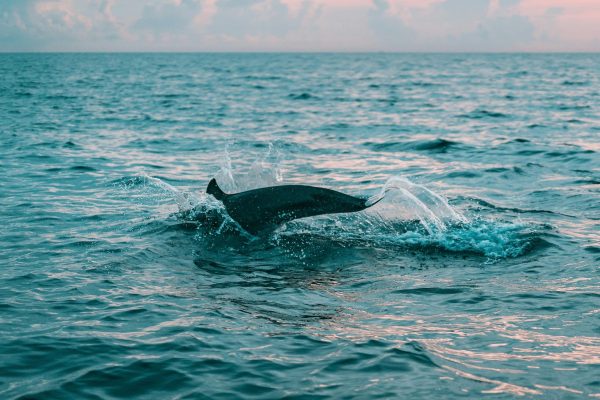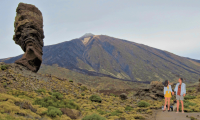Eco-Friendly Dolphin and Whale Watching – Protecting Tenerife’s MarineLife

In the pristine waters surrounding Tenerife, the opportunity to observe dolphins and whales in their natural habitat draws thousands of tourists annually. However, the surge in marine tourism necessitates a sustainable approach to ensure these majestic creatures are not harmed. This article explores eco-friendly practices for dolphin and whale watching that help protect the delicate balance of Tenerife’s marine ecosystem.
On this page
⬇️Check best travel insurance below!⬇️
Understanding the Impact of Marine Tourism
Marine tourism, if not managed responsibly, can have detrimental effects on local wildlife. Excessive boat traffic can seriously disrupt the lives of dolphins and whales. The noise and disturbance can cause stress, which can lead to health problems, reduced breeding success, and even collisions with boats. For instance, a research study published in the Journal of Marine Biology (2021) found that areas with high boat traffic experienced a 30% decrease in dolphin populations over a decade.
Key Practices for Eco-Friendly Watching
- Respectful Distance: Maintaining a minimum distance of 100 meters from any marine mammal.
- Reduced Speed: Operating boats at a slow, steady speed to avoid startling animals.
- Minimal Noise: Using boats designed to operate quietly, minimizing noise pollution underwater.
⬇️Best trasfers in Tenerife⬇️
Sustainable Whale and Dolphin Watching Guidelines
Adopting specific guidelines for whale and dolphin watching not only enhances visitor experience but also protects marine life.
Time Limitation
Observations should be limited to specific times during the day to give dolphins and whales periods of undisturbed activity, crucial for their feeding and social interactions.
Educating Tourists
Providing educational sessions for tourists before excursions can significantly increase awareness and compliance with eco-friendly practices.
Case Studies and Success Stories
Several initiatives in Tenerife have demonstrated the effectiveness of regulated marine tourism:
- Tenerife Dolphin Project: This initiative uses data from eco-tours to monitor dolphin populations and health, adjusting practices as needed.
- Whale Wise Regulation: A set of guidelines adopted by local tour operators, which has been linked to a decrease in stress indicators among whale pods in adjacent waters.
Implementing Change Through Policy
Governmental regulations play a pivotal role in safeguarding marine life. Tenerife has implemented several policies that serve as benchmarks for other regions:
- Mandatory Licensing: Requiring tour operators to obtain a license that mandates adherence to eco-friendly practices.
- Regular Audits: Conducting audits to ensure compliance with environmental standards.
Public Reporting: Encouraging the public to report any violations of marine watching guidelines.
Frequently Asked Questions for Eco-Friendly Dolphin and Whale Watching in Tenerife
Eco-friendly dolphin and whale watching refers to observing these marine animals in their natural habitat without harming them or the environment. This involves using sustainable practices such as low-emission boats, respecting animal distances, and promoting conservation efforts.
Keeping a respectful distance prevents stress and disturbance to the animals, ensuring their normal behavior and interactions remain undisturbed by human presence.
Typically, tours use electric, solar-powered, or hybrid boats that minimize noise and pollution. These boats are designed to have a minimal impact on the marine environment.
Tours can vary, typically lasting between 2 to 5 hours depending on the package and tour operator.
No, responsible eco-tours do not permit swimming with dolphins and whales as this can stress and harm the animals.
Dolphin and whale watching is possible year-round in Tenerife due to the resident populations, but some seasonal migrations might enhance sighting opportunities.
It’s recommended to bring sun protection, a hat, a light jacket for the sea breeze, and a camera for photos, without forgetting to stay hydrated.
Besides dolphins and whales, you might spot sea turtles, various species of fish, and occasionally sharks, depending on the area and time of year.
Yes, most eco-friendly dolphin and whale watching tours are suitable for children and provide educational content that can be valuable for all ages.
While sightings are highly likely, they cannot be guaranteed since these are wild animals in their natural habitat. Some operators may offer a return ticket for another tour.
More about Tenerife

Juan from Canarian Calling
Passionate about the Canary Islands, my blog offers insightful recommendations to enhance your travel experience, ensuring unforgettable adventures and cherished memories.
Latest Blog About Canary Islands

Los Cristianos market – A Local’s Insight

Playa del Duque – The Jewel of Costa Adeje









